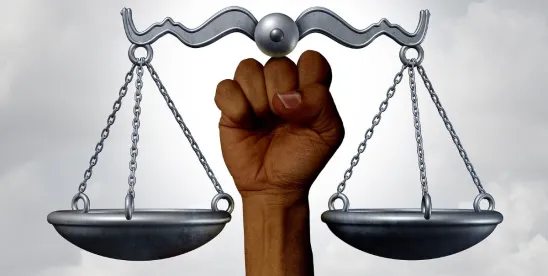In the week since “DEI and Bullying: Where Law, Politics, and Business Need To Align” was published in The National Law Review, the legal industry has seen a dramatic shift in its response to a concerted attack from the White House on law firm DEI practices. It has become a test of professional integrity and political influence as a divide has emerged between the approach of the largest law firms and the rest of the legal sector in managing this challenge.
Shortly after an Executive Order was issued by the Trump Administration against Paul, Weiss, the firm reached a deal with the White House—agreeing to relax DEI hiring policies and to provide $40 million in pro bono work directed toward causes politically aligned with the administration. In the days that followed, Skadden Arps, Wilkie Farr & Gallagher, and Milbank struck similar deals, each committing $100 million to more “administration friendly” pro bono causes.
And, as with the stock market, the world is watching. According to The Guardian, “The settlements come as many have expressed deep alarm at the US president’s effort to target law firms affiliated with his political rivals and see the actions as a thinly-veiled anti-democratic effort to intimidate lawyers from taking cases hostile to the administration.”
These settlements raise uncomfortable questions. What does it mean for DEI efforts when they can be bargained away? And what are the long-term implications of allowing the government to steer law firm priorities?
But in recent days, a powerful counterforce has emerged. On April 4th, in a show of unity, 500 law firms signed an amicus brief supporting Perkins Coie—a firm that has stood firm against political pressure. This collective legal move marks the first organized challenge to the executive order and a significant moment for the legal community. “The judiciary should act with resolve—now—to ensure that this abuse of executive power ceases,” the brief reads.
Notably absent from that list of 500: Big Law. According to Bloomberg Law: "None of the country's 25 largest firms signed the friend-of-the-court brief, filed in federal court Friday. A total of eight of the 100 largest players joined the more than 500 firms on the brief, which was organized by Munger Tolles & Olson. Their absence speaks volumes as the rest of the industry mobilizes to fight back through the courts."
Sharon Mahn, Esq., a leading legal recruiter and workplace expert, said "This is no longer just a policy scuffle. It’s now a legal and moral showdown, and we’re only in the opening rounds.”
Let’s hope it’s a short fight as the firms who signed the amicus brief press for a technical knockout. Meanwhile, this is one of several battles between politics and law, as USA Today points out in “Everything's an 'emergency': How Trump's executive order record pace is testing the courts.”
The opinions expressed in this article are those of the author and do not necessarily reflect the views of The National Law Review.




 />i
/>i

